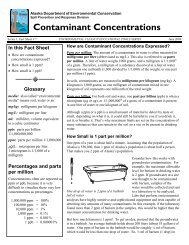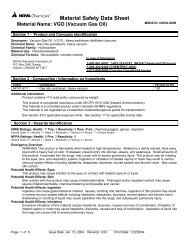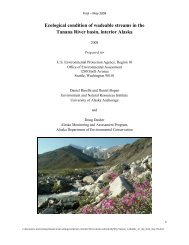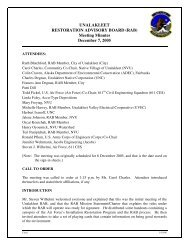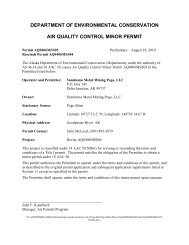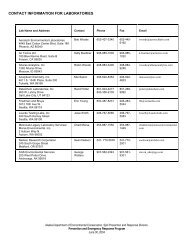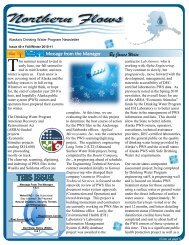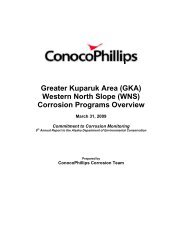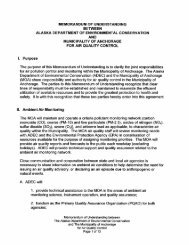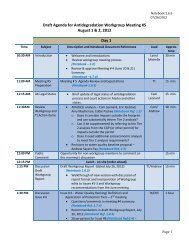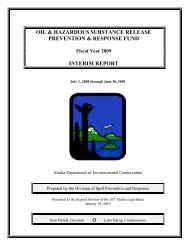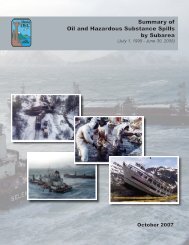2012 Ocean Ranger Guidebook Revision 3-7-12 - Alaska ...
2012 Ocean Ranger Guidebook Revision 3-7-12 - Alaska ...
2012 Ocean Ranger Guidebook Revision 3-7-12 - Alaska ...
Create successful ePaper yourself
Turn your PDF publications into a flip-book with our unique Google optimized e-Paper software.
<strong>20<strong>12</strong></strong> <strong>Ocean</strong> <strong>Ranger</strong> <strong>Guidebook</strong> 3-7-<strong>12</strong><br />
CLIA INDUSTRY STANDARD<br />
CRUISE INDUSTRY WASTE MANAGEMENT<br />
PRACTICES AND PROCEDURES<br />
The members of the Cruise Lines International Association (CLIA) are dedicated to<br />
preserving the marine environment and in particular the pristine condition of the oceans and other<br />
waters upon which our vessels sail. The environmental standards that apply to our industry are<br />
stringent and comprehensive. Through the International Maritime Organization, the United<br />
States and flag and port states, CLIA has developed consistent and uniform international<br />
standards that apply to all vessels engaged in international commerce. These standards are set<br />
forth in the International Convention for the Prevention of Pollution from Ships (MARPOL). The<br />
international standards of MARPOL have in turn been adopted by the United States and<br />
augmented by additional national legislation and regulation. The U.S. has jurisdiction over both<br />
foreign and domestic vessels that operate in U.S. waters where U.S. laws, such as the Federal<br />
Water Pollution Control Act, the Act to Prevent Pollution from Ships, the Ports and Waterways<br />
Safety Act, and the Resource Conservation and Recovery Act - which applies to hazardous waste<br />
as it is landed ashore for disposal, apply. The U.S. Coast Guard enforces both international<br />
conventions and domestic laws.<br />
The cruise industry commitment to protecting the environment is demonstrated by the<br />
comprehensive spectrum of waste management technologies and procedures employed on its<br />
vessels.<br />
CLIA members are committed to:<br />
a. Designing, constructing and operating vessels, so as to minimize their impact on the<br />
environment;<br />
b. Developing improved technologies to exceed current requirements for protection of<br />
the environment;<br />
c. Implementing a policy goal of zero discharge of MARPOL, Annex V solid waste<br />
products (garbage) and equivalent US laws and regulations by use of more<br />
comprehensive waste minimization procedures to significantly reduce shipboard<br />
generated waste;<br />
d. Expanding waste reduction strategies to include reuse and recycling to the maximum<br />
extent possible so as to land ashore even smaller quantities of waste products;<br />
e. Improving processes and procedures for collection and transfer of hazardous waste;<br />
and<br />
f. Strengthening comprehensive programs for monitoring and auditing of onboard<br />
environmental practices and procedures in accordance with the International Safety<br />
Management Code for the Safe Operation of Ships and for Pollution Prevention (ISM<br />
Code).<br />
147



